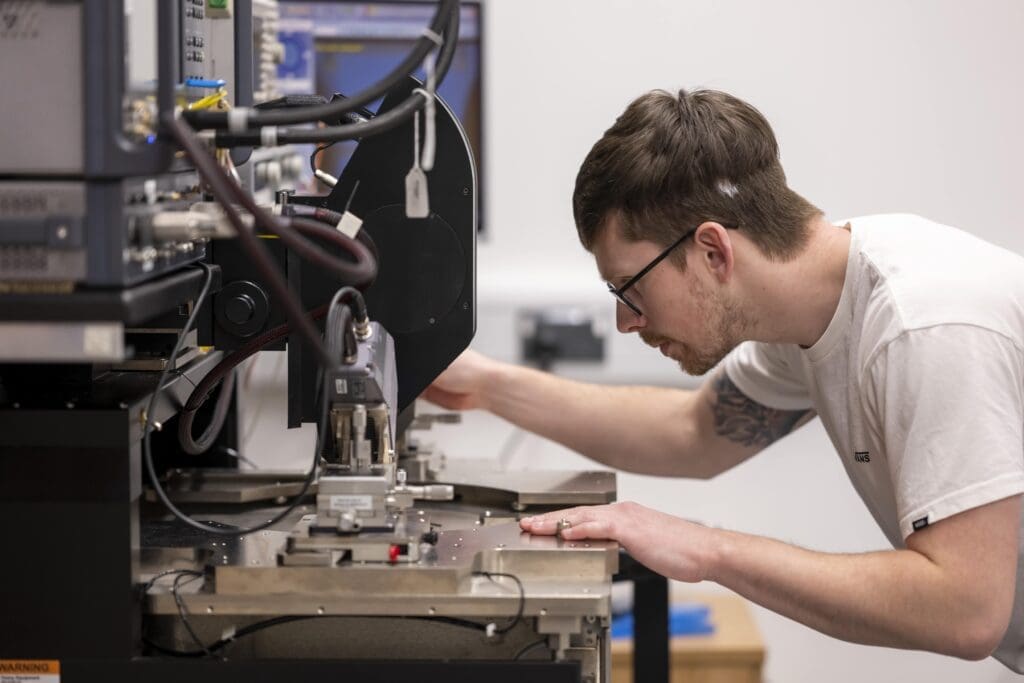Cardiff University and IQE have extended their strategic partnership in a move that will invest significantly in developing talent in compound semiconductors and help fuel the expansion of IQE’s South Wales manufacturing operations.
The new agreement provides a further five-year commitment from both partners to expand research capacity in compound semiconductor technologies.
Two new professorial chairs in compound semiconductors will be established, one in the University’s School of Physics and Astronomy and the other in the School of Engineering.
Both will utilise the cutting-edge facilities available in the recently commissioned Institute for Compound Semiconductors based at the University’s Translational Research Hub development on Maindy Road.
The agreement will also help improve skills provision at postgraduate and doctoral levels of study, funding two postdoctoral researchers and at least six PhD students with some drawn from underrepresented groups.
Professor Rudolf Allemann, Head of the University’s College of Physical Sciences and Engineering and Pro Vice-Chancellor, International, said: “The close and focused partnership between IQE Plc and Cardiff University has already delivered results, helping position south Wales as a leader in the field of semiconductor research and development.
“Over the next five years, we will build on that success with the partnership further benefiting industry and the regional economy.”
Beyond the funding commitments, Cardiff University and IQE have also agreed to establish a Strategic Collaboration Committee, which will act to align research and development interests and establish a joint roadmap for future collaborative research.
The Committee will also evaluate external funding opportunities to leverage added value for joint activities.
Americo Lemos, Chief Executive Officer of IQE, commented: “People are at the heart of innovation in the semiconductor industry and there is a recognised shortage of talent worldwide.
“By strengthening our partnership with Cardiff University, we are creating a talent pipeline for the benefit of IQE and the wider South Wales semiconductor industry to underpin growth.
“By supporting university-level training and collaborating on research and development, together we will continue to build a resilient and competitive world-class compound semiconductor ecosystem.”
The original collaborative venture between IQE plc and Cardiff University led to the creation of the Compound Semiconductor Centre (CSC), to focus on the commercialisation of research and development in compound semiconductor materials and device technologies.
The CSC uses research undertaken at Cardiff University to develop innovative new materials and technologies that will enable a wide range of new photonic and micro-electronic applications, providing a complete capability chain from research and development through to product and process innovation, to high-volume manufacturing via IQE’s global facilities.
Professor Wyn Meredith, Founding Director of the CSC, said: “We are delighted to be at the core of further strengthening the relationship between Cardiff University and IQE Plc.
“Since 2016, the CSC business model has delivered over £80M of collaborative research activity in compound semiconductor technologies for emerging applications in quantum systems, consumer electronics, future communications, and efficient electronics for net zero.
“This agreement will allow CSC to accelerate commercialisation of our IP, further extend our research and development roadmap, and steer doctoral level training activity for the benefits of the local semiconductor industry.”

